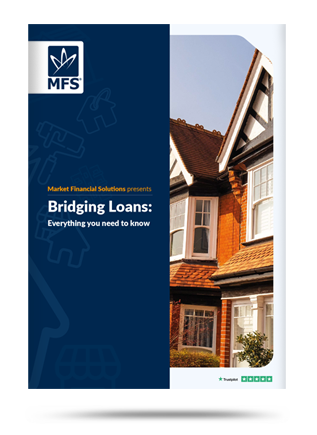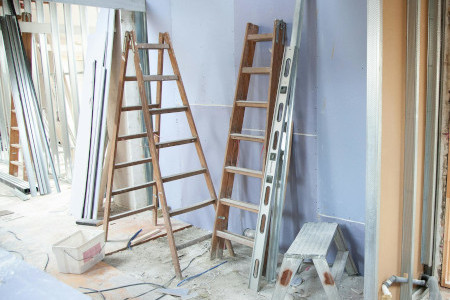Disclaimer
Market Financial Solutions are a bridging loan and buy-to-let mortgage provider and are not legal, financial, investment or tax advisers. This document is for informational purposes only and does not, and should not be considered, to constitute legal, financial, investment or tax advice or be relied upon by any person to make a legal, financial, investment or tax decision. Therefore, Investors are encouraged to seek appropriate professional advice. The information in this content is correct at time of writing.

Buyers are prioritising energy efficiency[1] in the current market, while the government also clearly has long-term sustainability in mind[2]. Many property investors and landlords will likely be thinking about green home grants for 2025.
The process of making a property greener can be costly and time-consuming. Fortunately, public support schemes are available to investors for these issues.
In recent years, the main supportive programme available to landlords was arguably the Green Homes Grant voucher scheme[3]. This scheme provided grants to homeowners and landlords to make energy-efficient improvements to their assets.
But this scheme closed to new applicants in 2021, and the vouchers can no longer be redeemed. Guidance for the scheme was officially withdrawn in 2023 – there is no “official” Green Home Grants 2025 scheme.
This doesn’t mean landlords have been left without options, though. There are several schemes still available for investors who want to make their properties greener, with a bit of help from the state.
1. The Great British Insulation Scheme
The Great British Insulation Scheme[4], also known as ECO+[5], allows eligible applicants to get free or cheaper insulation to reduce their home’s energy bills. This can include cavity wall insulation, solid wall insulation, loft insulation, and more.
The scheme is open to homeowners, landlords, and tenants. Support can be received if the home involved has an energy performance certificate (EPC) of D to G, and is in council tax bands A-D in England, or A-E in Scotland or Wales.
To be eligible, landlords will either need to be a “low-income[6]” applicant or, be a “general” applicant – the latter is likely to be more common for property investors. General applicants will only be able to get one type of insulation installed, but may still be able to benefit from lower costs.
To apply for free insulation, investors will need to head to the Government’s online eligibility checker. They’ll need to identify who their energy supplier is, along with their personal details. So long as they’re eligible, they should be contacted by their supplier within a few days to get the ball rolling.
Some of the UK’s biggest energy suppliers participate in this scheme, including British Gas, EDF Energy, and Octopus Energy. There are many elements to this scheme though, and so landlords may need to make sure they know its ins-and-outs before moving forward.
2. ECO4
The Energy Company Obligation[7] (ECO) is another government effort similar to the Great British Insulation Scheme which aims to tackle fuel poverty and help reduce carbon emissions. The scheme has seen four iterations so far, with ECO4 being the current version in use. It applies to measures introduced in 2022, and will cover a four-year period until 31 March 2026.
Eligible applicants can request support for the installation of various insulations, boiler upgrades, and solar panels. Generally, landlords with tenants who receive specific benefits, or who reside in fuel poverty-stricken areas[8], will likely be able to benefit.
To check on their eligibility, homeowners will need to head to the ECO4[9] website, where further guidance can also be found.

3. Home Upgrade Grant – HUG for landlords
Warm Homes: Local Grant is a new scheme, launched in April 2025. Through it, grants of up to £30,000 are available from local authorities to make a home warmer, and more energy efficient[10].
The grants can be put towards various home improvements including insulation, double glazing, solar panels, and heat pumps. The scheme is expected to run until 31 March, 2028.
For landlords to be eligible, their properties need to have a current EPC rating of between D and G[11]. So long as they qualify, they can receive up to £30,000 for their first rental property, and £15,000 for work on additional homes.
Funding will be capped at a maximum of £15,000 per home for energy performance upgrades, and £15,000 for low carbon heating. Also, the most any one landlord can receive through these grants is £315,000 in total.
Before applying, landlords need to check that funding is actually available in their area(s). If it is, landlords with low-income tenants (gross household income below £36,000 a year), and a property below an EPC C rating will be able to apply if they:
- Express permission for their details to be shared and stored on a central database of landlords participating in the Warm Homes: Local Grant
- Agree to support DESNZ-led surveys or evaluations regarding PRS uptake in the Warm Homes: Local Grant
- Confirm that the Minimum Financial Assistance threshold of £315,000 will not be exceeded by the landlord receiving the proposed assistance
- Confirm they do not intend to raise rents as a direct result of the upgrades being installed
4. Green home grants 2025 – alternative options
Looking ahead, additional support schemes will be coming to the forefront. And while some of the schemes may not impact landlords directly, they’ll certainly affect the wider market enough to make property investors sit up and pay attention.
Late last year, the government unveiled plans to ramp up its Warm Homes Plan[12]. A manifesto initiative that aims to improve the properties of low-income homeowners and private tenants in homes with EPC ratings of D to G to at least C[13]. More recently, it was confirmed that Rachel Reeves, would not be making cuts to this plan[14], meaning an extra £6.6bn will be spent on household energy efficiency projects by the end of the current parliament in 2029.
Then of course, there are the government’s plans to build 1.5 million homes over this parliament[15]. While it remains to be seen if this target will be hit, we know that new homes, generally, are greener than their older counterparts. If more environmentally friendly stock comes to market over the coming years, it could give expanding landlords food for thought.
On top of all this, there is also the Boiler Upgrade Scheme[16], Electric vehicle charge points and infrastructure grants[17], Disabled Facilities Grants[18], and more available. Investors will need to figure out what support is right for their circumstances.
Why property investors should care
Property investors, and landlords specifically, should at least be aware of what schemes are available to them. Multiple grants and support initiatives may fall under the “Green Home Grants 2025” umbrella. New EPC targets are coming[19], and those who fall foul of the rules could face costly repercussions.
There is also a financial incentive to act here. Demand is there for greener homes[20], and better energy performance often leads to higher house prices and/or rents[21].
Fortunately, many landlords already seem to be on the ball here. Landlords across the country are increasingly engaging with, or adopting green initiatives[22]. Millions may be forced into action too if they haven’t already started. Currently, only 42.3% of privately rented homes in England currently meet EPC band C or above, while 1.82million rental properties remain rated D or below, according to analysis from LandlordBuyer[23].
For those who still need to ready themselves for a greener future, the various grants available may prove to be of great use over the coming months. Where further financial support is needed however, Market Financial Solutions will be there with flexible funding to help bring their properties up to scratch.
The Complete Guide to
Bridging Loans
Everything you need to know
- Different bridging types
- Useful tools
- Apply them in real life
- Market insights & more
[1] https://www.rw-invest.com/uk/research-reveals-property-buyers-prioritise-energy-efficiency-in-homes/
[2] https://commonslibrary.parliament.uk/research-briefings/cbp-8830/#:~:text=Carbon%20emissions%20from%20homes,gas%20emissions%20in%20the%20UK.
[3] https://www.gov.uk/guidance/apply-for-the-green-homes-grant-scheme
[4] https://www.gov.uk/apply-great-british-insulation-scheme
[5] https://freeinsulationscheme.org.uk/eco-plus-scheme/
[6] https://www.moneysavingexpert.com/utilities/free-cavity-loft-insulation/
[7] https://www.ofgem.gov.uk/environmental-and-social-schemes/energy-company-obligation-eco
[8] https://www.consumer-rights.org/eco/eco4-scheme-for-landlords/
[9] https://eco4.org.uk/eco-funding/apply-for-eco4-funding/
[10] https://www.moneysavingexpert.com/utilities/warm-homes-local-grant/?utm_source=chatgpt.com
[11] https://www.nrla.org.uk/news/energy-efficiency-landlord-funding-pot-now-live?utm_source=chatgpt.com
[12] https://www.gov.uk/government/news/help-to-save-households-money-and-deliver-cleaner-heat-to-homes
[13] https://www.thisismoney.co.uk/money/bills/article-14020929/Free-heat-pumps-insulation-upgrades-worth-30k-Budget-pledges-3-4bn-improve-homes.html
[14] https://www.theguardian.com/politics/2025/jun/05/labour-warm-homes-plan-will-not-face-cuts-in-spending-review
[15] https://www.gov.uk/government/news/planning-overhaul-to-reach-15-million-new-homes
[16] https://www.gov.uk/apply-boiler-upgrade-scheme
[17] https://www.find-government-grants.service.gov.uk/grants/electric-vehicle-chargepoint-and-infrastructure-grants-for-landlords-1
[18] https://www.gov.uk/disabled-facilities-grants/eligibility
[19] https://www.insidehousing.co.uk/news/labour-government-confirms-2030-target-for-epc-c-88028
[20] https://www.mirror.co.uk/money/household-bills/eco-upgrades-boost-home-values-35022217
[21] https://moneyweek.com/investments/property/epc-ratings-house-prices
[22] https://www.property118.com/more-landlords-embrace-green-initiatives/
[23] https://propertyindustryeye.com/uphill-battle-for-landlords-to-meet-government-energy-efficiency-target/#:~:text=The%20company%20used%20the%20latest,significant%20retrofit%20works%20to%20comply.





